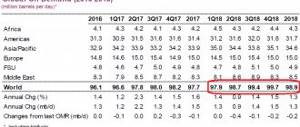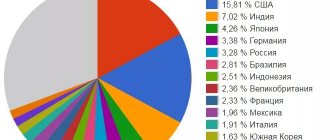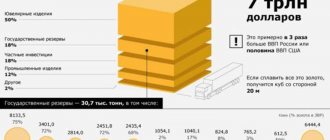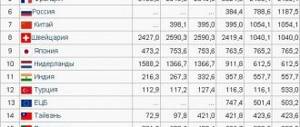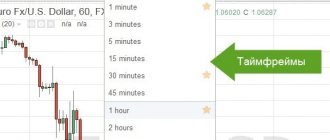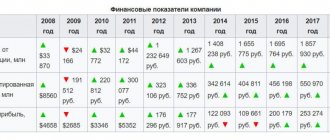The Tsar did not trade oil
The oily liquid that we now call black gold was not always considered as such. At the turn of the 19th–20th centuries. The golden commodity for Russia was grain. But oil was extracted only in the Caucasus and was not exported abroad as a raw material.
When the ruble was gold. What was the Russian economy based on 100 years ago? More details
“Nicholas II limited the export of crude oil in 1896 on the advice of Finance Minister Witte and chemist Mendeleev ,” says Roman Kirsanov, a senior researcher at the Institute of Russian History of the Russian Academy of Sciences . – Therefore, kerosene and technical oils were supplied abroad, and these supplies did not play a big role. The state list of income and expenses, as the budget was then called, was mostly replenished by state-owned railways and the wine monopoly. And at the expense of export earnings, foreign currency loans were repaid abroad. At the same time, 70% of all income of the Russian Empire from foreign trade came from agriculture, primarily the sale of wheat, butter and chicken eggs.”
“The growth of oil production in Russia before the First World War was 3 times lower than the rate demonstrated by the United States. And this is understandable: the global oil industry began to develop rapidly following the automobile industry, which the Americans were the first to create,” adds Mikhail Solovyov, the creator of the “Unboring Economy” website, Candidate of Economic Sciences . “Then the gap was widened by war and revolution. The Soviet oil industry was able to reach the pre-revolutionary level only by the beginning of the 30s. But even then the difference in oil production volumes between the USA and the USSR was tenfold” (see infographic).
Mafia connections
Sudan's Sovereign Council member Muhammad Hamdan Daglo accused government agencies of obstructing the work of the country's Higher Committee for Economic Emergency Situations (HCEC).
According to him, some structures of the transitional government of Abdalla Hamdok are collaborating with mafia associations that are blocking the efforts of the specialized group to restore order in the economy.
Muhammad Hamdan Daglo also criticized the lack of transparency in the work of a number of enterprises that play an important role in the development of the African state. He believes that this leads to multi-million dollar losses for the country's budget.
Federal News Agency /
A report by the non-governmental organization Global Witness confirms the suspicions of a member of the Sudanese Sovereign Council. The document describes activities importing gold from the territory of the republic. In particular, we are talking about the extraction of nuggets in mines under the control of armed groups that have no relation to the official authorities of Khartoum.
Through its channels, the company transports tons of precious metals abroad for processing at refineries.
Where did Stalin get his currency?
Industrialization, which changed the face of the Soviet Union in a matter of years, was carried out relying on the income that, as under the tsars, came from bread. The grain seized from the villages as a result of collectivization flowed abroad in such a powerful stream that in 1930 grain exports increased 9 times (!) compared to 1929. The government used the foreign currency to buy equipment abroad and build factories. However, the blow dealt to agriculture was so strong that in 1932–1933. A famine broke out, claiming millions of lives.
Article on the topic
No furniture, shoes, coats. “Philistine” needs in the era of industrialization “Soviet oil production, following the development of industry, increased in the 30s. 2.5 times. Then during the war, when the Germans captured the North Caucasus, many wells were closed in Grozny and Baku,” continues Solovyov. “But after the victory, oil production was quickly restored. Exploration and development of deposits intensified in Tatarstan, Bashkiria, Kuibyshev and Saratov regions. By the mid-1950s. The main oil production areas were the Urals and the Volga region.”
Why did Khrushchev carry out the devaluation?
However, the role of oil in public finances has changed little since the first five-year plans. And not because there wasn’t enough of it produced to supply it to other countries. In the 50s Oil production in the USSR tripled. However, foreign trade relations were weak.
“At the end of Stalin’s rule, we traded with only 45 countries. The country’s economy was self-sufficient, there was no urgent need for foreign goods, Kirsanov describes that period. – But under Khrushchev this balance was destroyed by economic experiments. In the early 60s. the country that previously fed Europe with bread itself began to pay in gold for grain purchased in the USA. It was also necessary to buy new technologies abroad. The question arose: how to ensure a guaranteed influx of hard currency?
Article on the topic
What do you need to know about the ruble exchange rate? Financial educational program There were few goods that could be sold ourselves: some types of equipment, ore, timber, the same oil. The export of energy raw materials was also hampered by the too high dollar exchange rate, which in the 50s. cost 4 rubles. The cost of oil was 9–10 rubles. per ton, and export revenue at those prices was only 12 rubles. Therefore, the denomination carried out in 1961 was actually a veiled devaluation that solved this problem. After all prices in the country were reduced by 10 times, the dollar fell not to 40 kopecks, but only to 90. And in fact, export revenue doubled.”
Gold forecasts
Economists at JPMorgan Bank expect the price of an ounce of gold to rise to $2,000 by the end of 2014.
If this happens, the price of gold will “exceed” the records of 2011, and will increase by 23 and a half percent when compared with today’s rate.
A similar forecast was made by GSBC experts, who expect the price of gold to reach $1,775 by 2015.
In addition, the financial group BNP Paribas believes that gold in 2015 can only be purchased at $2,125 per troy ounce. According to all these forecasts, we should expect the price of gold to rise.
Therefore, we have a question: why is the Russian government not increasing its gold reserves now?
How lucky was Brezhnev?
And then Samotlor was discovered - and by that time everything in the world was ready to welcome Soviet oil. The era of coal is over, the consumption of gasoline, jet fuel, and petrochemical raw materials has grown rapidly. The state had a resource in its hands that allowed it to temporarily not think about the contradictions that were already beginning to slow down the economy. “It is no coincidence that immediately after easy oil money appeared, the economic reforms begun by Kosygin were curtailed. This led to huge problems already in the 80s,” notes Oleg Buklemishev, director of the Center for Economic Policy Research at the Faculty of Economics of Moscow State University .
But 50 years ago everything was more than successful. Relations with Western Europe, the main buyer of Soviet energy resources, have warmed. In 1973, the West supported Israel in the war with Egypt and Syria. In response, oil-producing Arab countries punished the Israeli allies with an embargo on the supply of hydrocarbons, and this caused a global energy crisis, during which oil prices quadrupled. The Soviet Union used this moment to increase the sale of fuel raw materials at prices that were good for buyers. But even after that, it did not outweigh all other goods in its exports, as it does now. Many other goods were supplied abroad, primarily to socialist countries, from cardboard and fertilizers to machine tools and cars.
Article on the topic
We overtook Russia. Why the US has become a leading shale fuel producer
“By the early 80s, revenues from oil and gas exports in the USSR budget did not exceed 10%,” says Kirsanov. – Dependence on petrodollars was lower than today. However, this was enough for the entire structure of the economy to shake after the sharp drop in hydrocarbon prices that began in 1986. Gorbachev's mistakes made in the face of reduced foreign currency inflows was a reduction in food imports. This was one of the reasons for the growing commodity deficit and dissatisfaction with life in the country.”
“By the end of the Brezhnev era, the USSR became the leader in oil production in the world, ahead of the United States,” Solovyov sums up. – The peak was reached in 1988, when 624 million tons were extracted from the ground. And then a long-term decline in oil production began in Russia. The crisis ended only in 1999, when a decade of continuous growth in oil prices began, increasing from 10 to 140 dollars per barrel. Last year, the Russian Federation came close to the historical maximum of the RSFSR - 569 million tons produced in 1987-1988. But in the world in production, the United States is again the leader, which, thanks to the development of shale oil, has recorded its national record.”
last hope
The Sudanese government hopes to regain full control over gold mining and exports. To achieve these goals, an expanded committee is being created with the participation of representatives of relevant ministries. Their main task will be to develop special procedures to facilitate the conclusion of official contracts for the sale of precious metals.
The group’s responsibilities will also include preparing regulations on the confiscation of nuggets from illegal gold miners as part of the fight against smuggling.
By declaring war on smugglers, Khartoum hopes to correct an economic crisis that has only worsened since the April 2021 coup that removed Sudanese President Omar al-Bashir from power.
How to get off the needle?
Today, amid the coronavirus pandemic, prices have fallen again. To prevent collapse, all countries will have to reduce production. But the consequences will be different everywhere. The share of oil in the US economy is only 0.2%, in Russia it is around 6%, in Arab countries it is on average 16% (see infographic). What does it mean? In the lives of ordinary Americans, by and large, nothing will change from the bankruptcy of shale companies. But if after the current crisis it is not possible to restore both production and prices, many people in our country will have to forget about the growth of their incomes, and the Arab world will face great upheavals.
“The need to develop other industries in order to get off the oil needle is obvious to everyone. But fundamentally, little has changed,” Buklemishev assesses the situation. – And the problem is not that the share of the oil and gas sector in exports is too large, but that there is not and has not been a flow of money earned in the oil industry to more promising sectors of the economy. The state in Russia is trying to solve this problem by concentrating oil and gas revenues in the budget and manually redistributing them. But this approach, as we see, does not work well, and in recent years no attention has been paid to the development of financial markets that allow capital to be redistributed in a natural way.”
The black market for petroleum products will be converted into a legal field
A pilot project of a traceability system for the sale of petroleum products will be tested in St. Petersburg and the Leningrad region. This decision was made at the Interdepartmental Industry Working Group on Combating Illegal Trafficking in Oil Industry Products under the State Commission under the leadership of Alexey Abramov, head of the Federal Agency for Technical Regulation and Metrology. The pilot project was supported by the commission for combating illicit trafficking in industrial products in the Leningrad region and approved by Rosstandart. Later, the system will work throughout the country. What caused the need for such close control of fuel movement, how much time and, importantly, money will be spent on the Unified State Automated Information System, Andrey Mikheev, vice-president of the St. Petersburg Fuel Company, told the Competition and Market publication.
Shadow business
Shameless theft from pipelines, the sale of surrogate oil products under the guise of Euro 5, dumping prices for high-quality fuel obtained illegally - these problems have long been facing major players in the oil market. Every year in Russia, about 10 million tons of fuel are sold in circumvention of the law, which not only causes significant damage to bona fide companies, but also hits the state budget.
How many such suppliers are unknown. Being part of the physical world, these companies do not exist for government agencies. And while the legal part of the market is under serious pressure from all regulatory authorities, the illegal part is not subject to inspections at all, does not comply with safety requirements and other nuances that affect the price of each liter of gasoline.
The main share of violations occurs among legal entities. In an effort to save money, some transport enterprises become clients of illegal suppliers, purchasing counterfeit or counterfeit products.
For a long time, the state seemed to turn a blind eye to the shadow market. But the situation began to change. The authorities, Rosstandart, and the business community are working on the issue of how to make manipulation with counterfeit products economically unjustified. At the same time, the upcoming changes are not intended to force any companies out of the market.
“You don’t have to run after everyone and expose them to clean water. There is nothing effective about this. We just need to change the rules of the game and those market participants who are now working in the gray zone will continue to work, only legally, on different terms and principles,” explains Andrey Mikheev.
Everything is at your fingertips
The control system that is proposed to be introduced on the petroleum products market is simple and understandable. A similar option is already operating in the market for the sale of alcohol, fur, and tobacco, and its name is EGAIS. The need to introduce a system to control the movement of fuel has been long overdue. There are many known cases of theft of high-quality fuel from the pipelines of large companies, so-called tie-ins, which are unsafe from an environmental point of view and jeopardize the reliability of oil pipeline transport. According to the authors of the project, EGAIS will solve two main problems: it will ensure quality control of petroleum products and traceability of fuel movement.
Andrey Mikheev: “In our market, qualified tests are required to identify the product, and these tests cannot always determine the origin of the fuel. That is, after analyzing a petroleum product for quality, it is impossible to say whether all taxes were paid, and if not, then in whose pockets they ended up.”
Since the business is criminal, illegal immigrants cannot guarantee an uninterrupted supply of fuel to the buyer, so regular gasoline is purchased along with counterfeit goods. This is how a gray market is formed with a steady demand for surrogates and stolen petroleum products. By bypassing the state treasury, these suppliers receive a number of advantages over bona fide companies. Under unequal conditions, white market players and consumers at legal gas stations suffer losses.
Relying on conscience or coming up with repressive measures is of little use, says Andrei Mikheev. It is necessary to make the business unprofitable when there is nowhere to sell the stolen oil product.
The traceability system assumes that each participant in the fuel market will be on some kind of register. According to the plan, responsibility for the origin and quality of petroleum products will be transferred along the technological chain. For example, the carrier must keep track of who received the petroleum product and to whom he is transporting it, and whether the recipient and sender of the cargo are in this register. The parties will be required to reflect the notes on filling and draining of fuel in the traceability system. And until this happens, the carrier will have a restriction that will not allow it to receive the next shipment of fuel. Information about the dispatch and receipt of cargo will be available in real time. Such a system will prevent access to illegal immigrants and, consequently, the volume of thefts will be sharply reduced.
“When there is some kind of balance, it will be possible to track how much oil products came to the region. Then the second figure will appear - how much is absorbed by legal objects. If the balance does not converge, it will be possible to draw appropriate conclusions. Another important point is that the information will turn from a general figure into specific companies, names and surnames.”
The introduction of the system does not threaten ordinary car owners with a financial burden in the form of increased fuel costs. At least, the authors of the project are against such measures. It is assumed that the costs of implementing the system and its operation will be minimal, and if the system is created in the manner proposed by the business, instead of rising prices, we will receive a reduction in the cost of fuel at legal gas stations due to an increase in sales volumes.
*** All unfavorable phenomena noted in the fuel market are fully present in the Leningrad region. A meeting on this topic was held in the Government at the end of September. Recently the initiative was approved by the city authorities. The authors of the idea note that no money will be needed to implement the pilot project.
Andrey Mikheev: “With a pilot project we will work out a mechanism for interaction with end consumers. It is needed to answer the question of whether all the nuances have been taken into account to introduce the system at the federal level.”
The result of the pilot project will be reflected in an expert opinion, which will form the basis of a report at the Interdepartmental Industry Working Group on Combating Illegal Trafficking in Oil Industry Products and will accelerate the implementation of a traceability system at the level of the Russian Federation.
Sasha Kolesnikova
